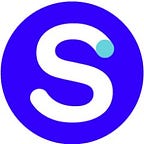“We are called to be architects of the future, not its victims” — Richard Buckminster Fuller (1895–1983), systems theorist, designer, and inventor.
We are witnessing an incredible and, at the same time, exciting era, dominated by innovation in all fields. Most of the actual coolest technologies have literally arisen in the last few years.
Blockchain, Virtual and Augmented Reality, Artificial Intelligence, Robotics, Nanotechnologies, 3D Printing, were not that popular three years ago, as they are nowadays. However, they have not gone mainstream yet, remaining restricted, at a conversational level, to a relatively small audience, within tech-addicted communities.
If for some people technology is scaring, and perceived as a problem, for others it represents a source of endless opportunities. New technologies will generate new behaviors, and, consequently, uncovered needs to be fulfilled.
Some of the currently top rated internet professions, such as Community Manager, User Experience Designer, Data Analyst, did not exist five years ago. According to the World Economic Forum’s report, The Future of Jobs, 65 % of children entering primary school today, will be employed in jobs that do not exist yet.
The rise of new technologies will change the work marketplace, potentially stealing some actual human jobs, but it will also create new scenarios, fresh chances and unpredictable professional challenges. When thinking about the future of work, 37% of workforce sees a world full of possibilities, with the 74% ready to learn new skills, in order to remain competitive (source: “Workforce of the future. The competing forces shaping 2030” — PWC).
Will the current education system be able to commit with the fast pacing evolution of the job market?
Graduating takes, on average, from four to six years, not to mention the high level of college dropout. Only a small percentage of graduates work in a domain that is related to the subject studied at the university. In addition, once the degree/diploma is obtained, it takes a few years before acquiring applied experiences, as the education given at the university is mainly based on rote learning.
If the process of graduating takes more than the process needed to launch a new technology, as we see nowadays, this means our education system is definitely outdated.
“If I had asked people what they wanted, they would have said faster horses” — Henry Ford
We cannot predict the next groundbreaking invention, nor expect successful business models to last eternally: some of the most popular contemporary companies might be replaced in two years by new ones, based on different logics, with an unusual approach or just resolving more recent human needs. The point is we are facing a dramatic shift in work culture paradigm, from a model based on long studies, to a new one based on a massive amount of information to be acquired in the shortest time possible. We are actually failing in supporting new generations’ education, as the current model was elaborated on the base of the progress velocity and innovations’ life cycle of the twentieth century.
Millennials, the youngest actual employees, represent nearly 25% of the current workforce, and they are surely marking significant trends in companies’ culture. Being tech savvy, for example, they tend to prefer online learning, as this solution allows them having low fees, a wide range of choices and an autonomous time management. Millennials feel more motivated when working in an environment that offers possibilities of improvement and learning opportunities. They love to be part of a meaningful project and they demand to be involved in practical challenges, where they can use creative thinking, more than just applying theoretical notions.
This new approach to work, together with the launch of new technologies, is having a strong impact on higher education and learning process in general.
With a growing need for human-centered solutions, individuals are searching more for a sense of unicity. The huge amount of e-learning tools, allows every professional to build his/her own set of skills. From a traditional higher education system, whose aim is to even students, classifying them under the label of their degree/diploma, the model is shifting to a new concept of learning, whose purpose is to allow each individual to build a customized and unique set of talents. In this new context, being unique is more valued than having a standard certification. Talents have to be applied to real situations. Both soft and hard skills are taken into account, as part of an individual. Education is no longer a single stage of our life, but it is a continuous improvement process. Professional profiles are made of multifaceted skills and talents.
Skyllz’s mission is to replace an outdated resume concept for a unique individuals’ Talent Brand.
Join Skyllz’s revolution! 🚀
P.S: for more info, join our community!
Telegram// https://t.me/Skyllz
